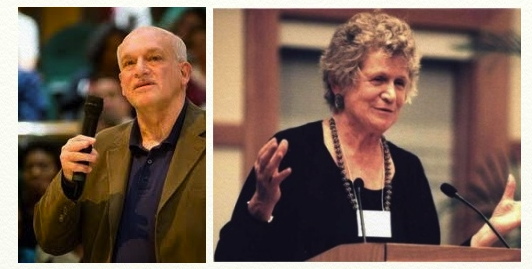Urban, Rural Schools Connected by Inequality
Author and advocate Mike Klonsky again writes to Deborah Meier today. The two are currently co-blogging on Bridging Differences.

Deb,
In last week's post, you write, "we've both avoided looking at the picture as it plays out in smaller towns and rural areas." I was considering your points on urban/rural this week, after reading Ta-Nehisi Coates' powerful and compelling piece "The Case for Reparations" in the June issue of The Atlantic. It's a narrative that can lead only to the conclusion that educational inequity is tightly bound up with the legacy of Southern slavery (America's original sin?), Jim Crow, and then Northern urban racial discrimination in education and housing.
Coates makes the case for reparations, saying:
"An America that asks what it owes its most vulnerable citizens is improved and humane. An America that looks away is ignoring not just the sins of the past but the sins of the present and the certain sins of the future. ... More important than any single check cut to any African American, the payment of reparations would represent America's maturation out of the childhood myth of its innocence into a wisdom worthy of its founders."
I agree. This statement parallels in many respects the 2006 AERA convention speech given by education scholar Gloria Ladson-Billings. In this speech, titled "From the Achievement Gap to the Education Debt: Understanding Achievement in U.S. Schools," Ladson-Billings called for dumping the term "achievement gap," which unfairly portrays black and Latino students as "defective and lacking," while penalizing them and their school for "low performance" on tests. She suggested the term "education debt," moving to a discourse that holds our society accountable for the public education of all our children—not just our own or the ones we're paid to teach.
There's no avoiding rural school issues. If I tend to focus more these days on the struggles in urban and suburban education, it's because that's where I live, teach, and do my research.
But urbanites are not the only ones pushing back against the corporate "reformers." We can't Urban, Rural Schools Connected by Inequality - Bridging Differences - Education Week:
